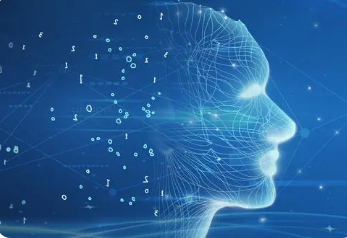
An Argumentative Essay About to What Extent Is the Development of Artificial Intelligence a Threat to Society
关于人工智能的发展 Artificial intelligence can contribute to social progress and economic development. Artificial intelligence has become an important
1. Introduction
1.1. Background 关于人工智能的发展
Artificial Intelligence (AI), which originated in the 1950s, has been developed rapidly in various fields, including industry, agriculture, finance, education, medical care, military, scientific research, etc.. And has had a profound impact on human society in terms of economic, political and cultural development (Calo, 2017, p.1). Nonetheless, like many other emerging technologies. The evolution and application of AI technology have come with many potential threats, including unemployment concerns, social inequality, security issues, ethical dilemmas, etc. (Koski, 2018, p.12). While bringing about a great boost to the development of human society.
1.2. Thesis statement
Concerns about the current and potential threats of AI to human society are rising with the rapid development and expansion of AI technology and applications. There are two dominant views on the impact of AI on society. One is that AI will pose ongoing threats to human society and will jeopardise the very fabric of human society and the essential life of human communities. The other one is that AI is a controllable and powerful technological means of production, the evolution and application of which will constantly facilitate social development and progress.
Regarding these two dominant views, the author’s position is that Artificial Intelligence is potentially an essential threat to the stability and sustainability of human society without effective supervision. While it is currently a controllable and powerful technological means that can make positive contributions to the development of society and economy. 关于人工智能的发展

1.3. Essay structure
To argue for the author's position as declared above. This essay is designated to elucidate and analyse two arguments for the author’s statement . And one counterargument against the author’s view. And finally, justify the author’s statement accordingly.
2. Argument and Counterargument Analysis
2.1. Argument 1 – Artificial intelligence may weaken human cognitive and practical abilities. 关于人工智能的发展
The first threat to human society posed by AI to be considered is that AI may weaken human cognitive and practical abilities. Technically, Personified AI relies on massive amounts of data . And an objective stance generated by human beings’ psychological activities and socialised behaviours. Which is expected to help humans anticipate the future development dynamics of society and reduce the mistakes in decision-making by humans or government agencies. Nevertheless, intelligent carriers empowered by AI, e.g. AI companion for grief recovery (Landström & Mustafa, 2018). May have intelligence and emotional intelligence beyond that of ordinary humans.
Ordinary people could find it difficult to resist the temptation of intelligent carriers.
And they generally believe that intelligent carriers also have independent personalities . And find it difficult to extricate themselves after investing more energy in them. In the long run, people's outlook on life, the world and their values would be affected. The way human beings interact with each other in the real world could be replaced by the virtual human-machine interaction of artificial intelligence subjects so that people's sociability, decision-making ability, independence, etc.. Will gradually weaken and their personalities would become more withdrawn (Joy, 2000, cited in Makridakis, p.9).
In addition, the application of AI technology will pose a certain threat to the development of human beings' own practical abilities. As social subjects, people are gradually becoming increasingly dependent on intelligent technology. And if people remain in an environment assisted by AI-enabled platforms or tools, they are likely to reduce or lose their practical abilities gradually (Anderson and Rainie, 2018). With the widespread use of AI participants, people are bound to think of using intelligent bodies to cope with new challenges or problems. People are risky to gradually weaken their practical capabilities, especially in younger age groups, and amount to a disguised deprivation of the opportunity to develop their creativity, while they will also become more dependent on AI devices. 关于人工智能的发展
2.2. Argument 2 – Artificial intelligence may lead to mass unemployment within human society.
Another potential threat posed by AI is that AI may lead to mass unemployment within human society. Labour is the expression of human values and an inviolable right of people in modern society. To be replaced in such a ruthless and valueless way is always physically and emotionally unsettling. In the long run, this evolves into one of the central influences in the deconstruction of society. AI-enabled robots and machines are essential to be more knowledgeable and hard-working than the average human being with advanced AI algorithms employed.
In this regard, AI robots and machines are very likely to replace human workers in many labouring positions that require highly repetitive and organised work. With the restructuring of industries and the increase in the intelligence of their production, the problem of structural unemployment could be intensifying. In this context, human workers in the lower social strata are at risk of losing more jobs and becoming marginalised, which will further increase the gap between the rich and the poor in society (Koski, 2018, p.44).
It is worth stating that at the current stage, the technology implemented in AI is still only weak AI. 关于人工智能的发展
And existing AI is mostly seen as a combination of automation technology and big data from computers and the internet. Therefore, an analysis of the possible impact of automation on human work is also looking at the impact of AI technologies in terms of employment. In recent years, automation technologies, including artificial intelligence, autonomous systems and robotics, have advanced by leaps and bounds, raising concerns about the future of employment.
When strong AI in the true sense is widely used in industry, medicine, education and services. It is probable that a deterioration in human employment will occur. As stated in Frey and Osborne’s study (2013, cited in Makridakis, p.11), 47% of all occupations of the labouring market at the time is anticipated to be displaced, potentially leading to societal disruptions due to a fast and huge reduction in employment. Szczepa (2019, p.3) also claimed that substitution of human labour will be caused by automation and increased innovation in products and services, and AI is causing shocks in the job market and increase the expense in managing labour-market transitions.
2.3. Counterargument 1 – Artificial intelligence can contribute to social progress and economic development
Artificial intelligence can contribute to social progress and economic development. Artificial intelligence has become an important force in influencing society, penetrating all walks of life, leading to innovations in industries and flourishing in different fields. AI has created enormous value in various industries and fields, e.g. the economic and financial sector, healthcare, autonomous driving, natural language translation and intelligent assistants. The development of artificial intelligence is conducive to productivity improvement, economic restructuring and upgrading, and improving the material living standards of the people, as it has a profound positive impact on the economy and society. Specifically, the development of science and technology represented by artificial intelligence continues to penetrate into the constituent elements of social productivity. 关于人工智能的发展
The wide application of AI in various fields, including industry, agriculture, consumer convenience, accessibility, education, business operations, disaster prevention and response, environment, healthcare, social good, energy, etc., has given rise to a variety of new technologies, forms, products, models and business models (Castro & New, 2016, pp.18-21). It enables various elements of society to function fully and effectively, promoting economic development and the progress of human society. According to the report from Accenture (Purdy & Daugherty, 2016, cited in Castro & New, p.15), AI is expected to upsurge the annual growth rate of American and Finnish national economies by 2 percentage points, the Japanese economy by 1.9 points, and the German economy by 1.6 points by 2035.
3. Conclusion 关于人工智能的发展
In conclusion, based on the clarification and analysis of arguments and the counterargument conducted in the essay, it can be justified that AI can currently contribute to social progress and economic and product development, however, the threat AI poses to human society in the future cannot be disproved. This essay, therefore, argues that the threat of AI to human society will likely be a continuous and escalating one, i.e. the author’s position as declared in the thesis statement section.
References
Anderson, J. and Rainie, L., 2018. 1. Concerns about human agency, evolution and survival. [online] Pew Research Center: Internet, Science & Tech. Available at: <https://www.pewresearch.org/internet/2018/12/10/concerns-about-human-agency-evolution-and-survival/> [Accessed 20 August 2021].
Calo, R., 2017. Artificial Intelligence policy: a primer and roadmap. UCDL Rev., 51, p.399.
Castro, D. and New, J., 2016. The promise of artificial intelligence. Center for Data Innovation, 115(10), pp.32-35.
Koski, O., 2018. Work in the age of artificial intelligence: Four perspectives on the economy, employment, skills and ethics.
Landström, M. and Mustafa, N., 2018. Developing an Artificially Intelligent Tool for Grief Recovery.
Makridakis, S., 2017. The forthcoming Artificial Intelligence (AI) revolution: Its impact on society and firms. Futures, 90, pp.46-60.
Szczepanski, M., 2019. Economic impacts of artificial intelligence (AI). European Parliamentary Research Service (PE 637.967). 关于人工智能的发展

商科代写 cs代写 法律学代写 经济学代考_经济学作业代写 艺术代写 心理学代写 哲学代写 伦理学代写 体育学代写 化学代写 教育学代写 医学代写 历史代写 地理学代写




发表回复
要发表评论,您必须先登录。